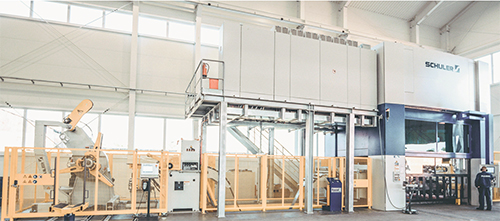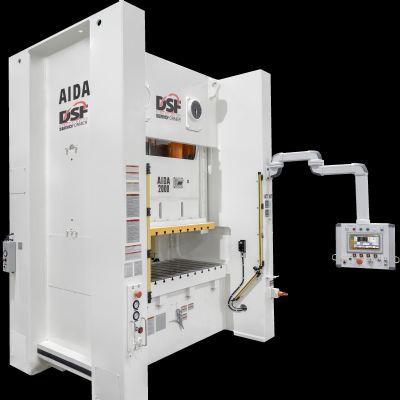Servo Press Cuts Cycle Time, Electricity Usage
July 1, 2018Comments
 Plasmet Czechowicz, a Polish metalformer specializing in steel and aluminum components for a variety of applications, performed a thorough analysis prior to deciding to purchase a new servo-mechanical press. Ultimately, the company chose a 630-ton-capacity model from Schuler (with U.S. headquarters in Canton, MI) to produce automotive stampings. Use of that press has shortened the part production cycle by 30 percent, according to Plasmet officials.
Plasmet Czechowicz, a Polish metalformer specializing in steel and aluminum components for a variety of applications, performed a thorough analysis prior to deciding to purchase a new servo-mechanical press. Ultimately, the company chose a 630-ton-capacity model from Schuler (with U.S. headquarters in Canton, MI) to produce automotive stampings. Use of that press has shortened the part production cycle by 30 percent, according to Plasmet officials.
The new press, a MSD 630 model, produces parts from sheetmetal in thicknesses from 0.5 to 6 mm. Press-line automation ensures that operators need not intervene in the process until a finished part exits the line, according to Jan Czechowicz, Plasmet general manager.
“The operator's work consists mainly of setting parameters and observing the process,” he says.
The variable nature of the slide has enabled the shorter cycle time, Czechowicz reports, while improving part quality.







